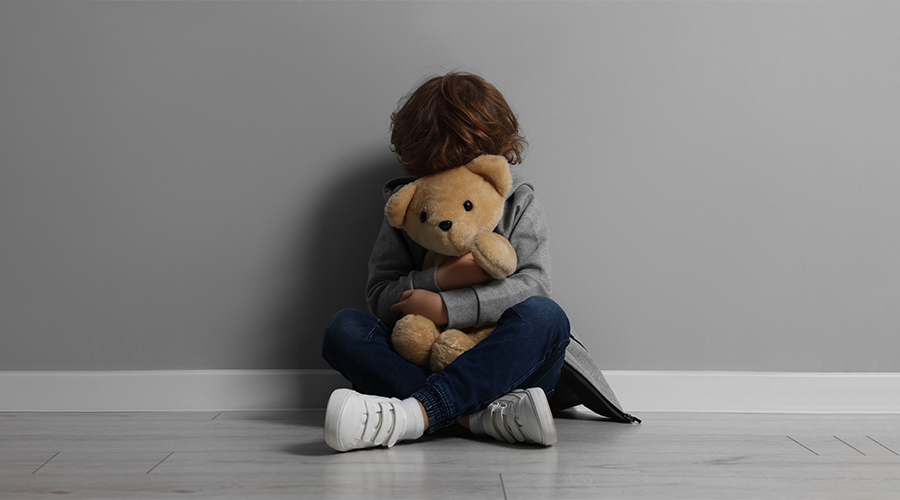-
Aug 14, 2024
-
0 comments
Childhood is a critical period in our lives, a time when our minds and hearts are shaped by the experiences and relationships we encounter. One of the most profound and lasting impacts on an individual’s emotional and psychological well-being is the experience of abandonment.
When a child feels abandoned—whether through physical absence, emotional neglect, or inconsistent presence of a caregiver—the effects can ripple through their entire life, particularly manifesting in their adult relationships.
In this case, considering holistic counselling or trauma healing may show the path of light erasing past bitter experiences. But before running after solutions, exploring the root cause is essential.
The Causes of Abandonment
Abandonment issues often stem from a variety of early life experiences:
-
Parental Loss or Separation: Divorce, death, or prolonged absences of a parent can create deep-seated fears of being left alone.
-
Emotional Neglect: When a child’s emotional needs are not met, they can feel invisible, unloved, or unimportant.
-
Inconsistent Care: Caregivers who are unpredictable in their availability and affection can cause a child to develop anxiety and mistrust.
These early experiences can instil a pervasive sense of insecurity, leading to a chronic fear of abandonment. The child internalises a belief that they are not worthy of love or stability, and this belief often carries into adulthood. And one of the best ways to get rid of these feelings is by considering Reiki or holistic healing services.
Impacts in Adult Relationships
As adults, those who experienced abandonment in childhood may struggle with forming and maintaining healthy relationships. Here are some common ways abandonment issues can impact relationship:
-
Fear of Intimacy: The deep-seated fear of being hurt or left can make individuals hesitant to get too close to others. They might keep relationships at arm’s length or push partners away to avoid potential pain.
-
Clinginess and Dependency: On the other end of the spectrum, some individuals might become overly dependent on their partners. They may seek constant reassurance and fear being alone, leading to codependent behaviours.
-
Jealousy and Distrust: A persistent fear of being abandoned can breed jealousy and distrust. Individuals might become suspicious of their partner’s actions, doubting their commitment and loyalty without substantial reasons.
-
Self-Sabotage: Believing they are unworthy of love, some people might unconsciously sabotage relationships. They might provoke conflicts or create situations that lead to a breakup, reinforcing their belief that abandonment is inevitable.
-
Emotional Rollercoasters: Relationships can become tumultuous, with intense highs and lows. This can stem from the individual’s internal conflict between craving connection and fearing the vulnerability it entails.
Healing the Wounds of Abandonment
Healing from childhood abandonment issues requires a multi-faceted approach. Here are some steps to begin the journey towards healthier relationships:
-
Self-Awareness: Recognizing and acknowledging the presence of abandonment issues is the first step. Understanding how these issues manifest in one’s behaviour and relationships is crucial.
-
Therapeutic Support: Working with a holistic counsellor or therapist specialising in trauma and attachment can provide the tools and support needed to heal.
-
Inner Child Work: Engaging with the inner child can help heal the wounds of abandonment. This involves nurturing and comforting the child within, providing the love and assurance that was lacking during formative years.
-
Building Trust: Establishing trust in relationships requires time, patience, and consistent positive experiences. Open communication and setting healthy boundaries can foster a sense of security.
-
Self-Love and Compassion: Cultivating a strong sense of self-worth and self-compassion is essential. Practices such as mindfulness, meditation, and affirmations can help reinforce a positive self-image.
-
Healthy Relationships: Surrounding oneself with supportive, reliable, and understanding individuals can provide a new blueprint for what healthy relationships look like. These positive connections can help rewire the brain’s expectations and responses to intimacy and connection.
Moving Forward
Childhood abandonment issues can cast a long shadow, but with understanding, compassion, and dedicated effort, it is possible to step out of that shadow and into the light of healthy, fulfilling relationships.
At Enlight10 Path, we are dedicated to supporting you on this journey of healing and transformation through different methods, like Reiki, holistic counselling, trauma healing, Pellowah healing, Seichim healing, and more.
Remember, the past may shape you, but it does not have to define your future. You have the power to create a new narrative, one where love, trust, and connection thrive.
If you are struggling with the lingering effects of childhood abandonment, reach out on 0414591443. Healing is possible, and you do not have to face it alone.





